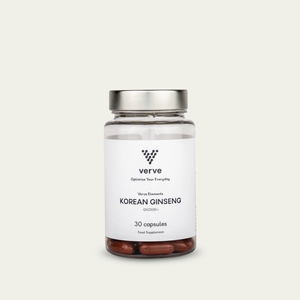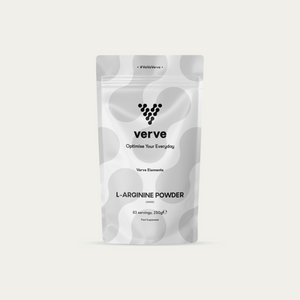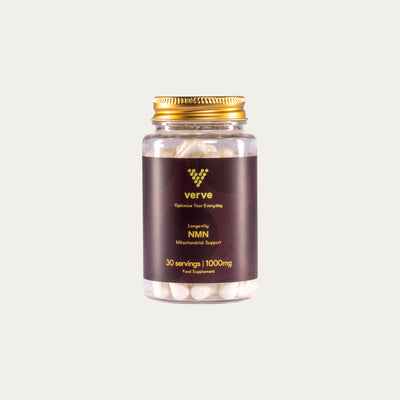Table of Contents
Sleep is an essential pillar of health, influencing everything from our cognitive function to our emotional well-being.
Yet, many people are unaware of the complexity of sleep and its various stages. Each night, our bodies and brains go through a series of sleep stages that play distinct roles in recovery, memory consolidation, and overall health.
Understanding these stages can help us optimise our sleep and, in turn, improve our quality of life. In this guide, we’ll explore the different stages of sleep, how they work, and why they matter.
The Sleep Cycle: An Overview
The sleep cycle is a recurring sequence that our bodies go through multiple times each night. It consists of two main types of sleep: Non-REM (Non-Rapid Eye Movement) and REM (Rapid Eye Movement) sleep. A complete sleep cycle typically lasts about 90 minutes and repeats four to six times per night, depending on how long you sleep.
Non-REM Sleep is divided into three stages, progressing from light to deep sleep, each with distinct characteristics. After cycling through these stages, the body enters REM Sleep, where brain activity increases, and dreaming occurs. The balance between Non-REM and REM sleep is crucial for restorative sleep.
Non-REM Sleep: The First Three Stages
Non-REM sleep has three stages, which are the first three sleep stages. Below, we’ve explained their importance and characteristics.
Stage 1: Light Sleep
- Characteristics: This is the transition phase between wakefulness and sleep, where your body begins to relax.
- Duration: Typically lasts just a few minutes.
- Physiological Changes: Heart rate slows down, muscles relax, and eye movements cease.
- Role in the Sleep Cycle: This stage prepares the body for deeper sleep.
Stage 2: Slightly Deeper Sleep
Stage 2 is slightly deeper sleep, which is crucial for consolidating memories, processing information that was learned throughout the day and other cognitive processes.
- Characteristics: Your body temperature drops, and heart rate continues to slow.
- Duration: Around 20 minutes per cycle.
- Physiological Features: Sleep spindles and K-complexes appear, which are bursts of brain activity.
- Importance: This stage helps consolidate memories and process information learned during the day.
Stage 3: Deep Sleep (Slow-Wave Sleep)
- Characteristics: Dominated by slow delta waves, this stage is the deepest form of Non-REM sleep.
- Duration: Varies, but is typically longer in the first half of the night.
- Physiological Features: It’s the most restorative phase, where the body repairs tissues, builds muscle, and strengthens the immune system.
- Importance: Deep sleep is crucial for physical recovery and overall health.
REM Sleep: The Dream Stage
Finally, we have REM sleep which is crucial for emotional regulation and creativity.
Characteristics of REM Sleep
- Physical Features: Rapid eye movement, increased brain activity, and vivid dreams characterise this stage.
- Duration: It gets longer with each cycle, starting at about 10 minutes and extending up to an hour in later cycles.
- Brain Activity: Brain Waves during REM sleep resemble those seen during wakefulness, indicating high levels of brain activity.
- Role: REM sleep is essential for emotional regulation, creativity, and memory consolidation.
The Importance of REM Sleep
- Cognitive Benefits: REM sleep enhances learning and problem-solving abilities.
- Emotional Health: It plays a key role in processing emotions and reducing stress.
- REM Sleep Behavior Disorder: This condition involves physical activity during REM sleep, leading to potentially dangerous situations if left untreated.
The Sleep Cycle Throughout the Night
Throughout the night, your body cycles through the different stages of sleep. The early part of the night is dominated by Non-REM sleep, particularly deep sleep, which is vital for physical recovery. As the night progresses, REM sleep stages lengthen, contributing more to cognitive functions like memory and learning. Completing multiple sleep cycles is essential for waking up refreshed and fully restored.
On average, adults experience about 4 to 6 sleep cycles per night. Each cycle lasts approximately 90 minutes, encompassing both Non-Rapid Eye Movement (NREM) and Rapid Eye Movement (REM) sleep stages. The number of cycles can vary depending on individual sleep patterns and overall sleep duration. As you progress through the night, the duration of REM sleep typically increases, while the time spent in deep NREM sleep decreases. Understanding these cycles can help in optimising sleep quality and ensuring you wake up feeling refreshed.
The Importance of Hitting Deep Sleep
Deep sleep, also known as Slow-Wave Sleep (SWS), is crucial for physical and mental restoration.
During this stage, the body repairs tissues, builds bone and muscle, and strengthens the immune system.
However, individuals with broken sleep often struggle to reach or maintain deep sleep, impacting their overall well-being. Fragmented sleep can lead to chronic fatigue, impaired cognitive function, and an increased risk of chronic diseases such as heart disease, diabetes, and obesity. Consistently missing out on deep sleep can disrupt these restorative processes, leading to long-term health issues and reduced quality of life. Prioritising uninterrupted sleep is essential for maintaining optimal health and daily functioning.
Factors Influencing Sleep Stages
Sleep stages are also affected by various factors, which we have explained below.
Age and Development
- Lifespan Changes: Sleep stages vary significantly across different age groups. For example, infants spend more time in REM sleep, which is essential for brain development, while older adults experience shorter deep sleep stages, which may contribute to difficulties in physical recovery.
- Aging Effects: As we age, the proportion of REM and deep sleep decreases, leading to lighter, more fragmented sleep.
Lifestyle and Sleep Habits
- Sleep Deprivation: Consistent lack of sleep can disrupt the balance of sleep stages, leading to reduced deep sleep and shorter REM cycles.
- Impact of Diet and Exercise: Proper nutrition and regular physical activity can enhance sleep quality, while poor habits like late-night snacking or inactivity can interfere with sleep stages.
Medical Conditions and Medications
- Sleep Disorders: Conditions like insomnia, sleep apnea, and narcolepsy can significantly alter sleep architecture, often reducing the time spent in deep and REM sleep.
- Medication Impact: Certain medications, such as antidepressants or stimulants, can affect the duration and quality of specific sleep stages.
Tips for Optimising Sleep Quality
We also wanted to walk you through some tips to optimise your sleep quality to improve your quality of life.
Establishing a Consistent Sleep Routine
- Regular Schedule: Going to bed and waking up at the same time every day helps regulate your body’s internal clock.
- Bedtime Rituals: Engage in relaxing activities, like reading or meditation, to signal your body that it’s time to wind down.
Creating a Sleep-Conducive Environment
- Ideal Conditions: Keep your bedroom cool, dark, and quiet to promote uninterrupted sleep.
- Comfort: Invest in a good-quality mattress and pillows to support your body during sleep.
Healthy Lifestyle Choices
- Balanced Diet: Avoid heavy meals and stimulants like caffeine close to bedtime.
- Physical Activity: Regular exercise can improve sleep quality, but avoid intense workouts late in the evening.
Seeking Professional Help
- When to Consult a Specialist: If you experience persistent sleep disturbances, it may be time to see a sleep specialist.
- Possible Treatments: Options include cognitive-behavioural therapy, sleep studies, and medication adjustments.
Verve Eclipse Duo: Enhancing Your Sleep with Natural Ingredients
Verve Eclipse Duo is a comprehensive sleep aid designed to support all stages of sleep with its blend of natural ingredients. Each ingredient is carefully selected to address specific aspects of sleep, making it a powerful tool for improving sleep quality.
Key Ingredients and Their Benefits
- Vitamin B6: This vitamin helps regulate sleep patterns by supporting the production of serotonin and melatonin, essential hormones for sleep.
- Zinc Picolinate: Zinc contributes to overall sleep quality by aiding in the body’s recovery processes during deep sleep.
- Chaga Mushroom: Known for its immune-boosting properties, Chaga helps the body manage stress, which can improve sleep onset and duration.
- Chamomile Extract: Chamomile is well-known for its calming effects, which can help ease anxiety and promote relaxation, making it easier to fall asleep.
- L-Theanine: Derived from Green Tea Leaf, L-Theanine enhances relaxation without causing drowsiness, supporting both Non-REM and REM sleep stages.
- Lavender Herb Extract: Lavender reduces anxiety and improves overall sleep quality by promoting deep sleep.
- Lemon Balm Extract: This herb calms the nervous system, helping reduce symptoms of insomnia and improving sleep quality.
- Montmorency Cherry Extract: Rich in natural melatonin, it helps regulate the sleep-wake cycle, ensuring a more consistent and restorative sleep.
- Passionflower Extract: Passionflower alleviates anxiety and promotes calmness, aiding in the transition from wakefulness to sleep.
- Magnesium (as Citrate): Magnesium relaxes muscles and nerves, reducing night time awakenings and improving overall sleep quality.
- Hawthorn Leaf Extract: Supports cardiovascular health, which can improve overall relaxation and support deep sleep.
- Hops Flower Extract: Acts as a natural sedative, enhancing both the onset of sleep and its duration.
- Lion’s Mane: Known for supporting cognitive function, Lion’s Mane helps clear the mind and reduce stress before bedtime.
- Reishi Mushroom Extract: Often called the “mushroom of immortality,” Reishi enhances relaxation and stress relief, promoting deeper sleep.
- Rosemary Extract: Rich in antioxidants, rosemary supports brain function and reduces anxiety, which can improve the quality of sleep.
Why Verve Eclipse Duo Stands Out
Verve Eclipse Duo’s unique blend of ingredients makes it more effective than many other sleep aids on the market. By addressing multiple aspects of sleep, from reducing anxiety to promoting deep, restorative sleep, Verve Eclipse Duo provides a holistic approach to better sleep. Its natural, non-habit-forming formula ensures you wake up refreshed without the grogginess often associated with other sleep aids such as Melatonin.
Sleep Stages: Conclusion
Understanding the stages of sleep and how they work is crucial for optimising your sleep and improving your overall health. By adopting good sleep hygiene practices and considering sleep supplements like Verve Eclipse Duo, you can enhance your sleep quality and ensure you wake up feeling refreshed and ready to tackle the day. Prioritise your sleep, and your body and mind will thank you.


















































